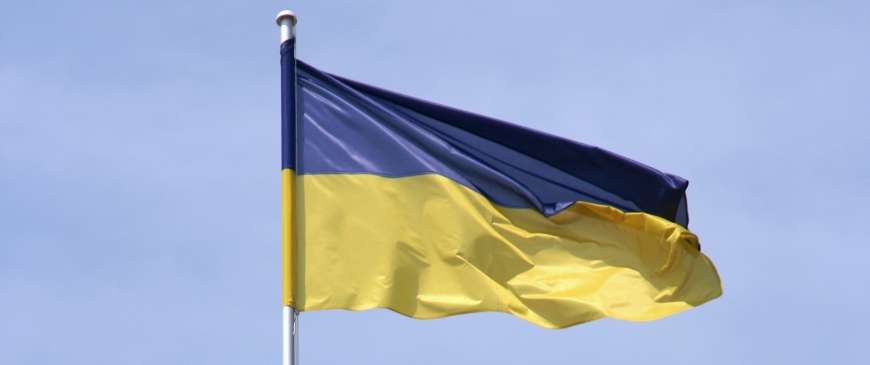
Soccer boycott could kick Ukraine toward reform
If war is a continuation of politics by other means, then so is soccer. That's why European Union leaders are right to use the"beautiful game" to pressure an ugly regime in Ukraine. Those who say it's a mistake, and that the EU should speak softly to avoid pushing President Viktor Yanukovych into Russia's arms, are getting him wrong.
Senior European figures, including German ChancellorAngela Merkel and European Commission President Jose Barrosorecently announced plans to skip the Euro 2012 soccer championship that will be played in Ukraine and Poland in June. So many EU leaders canceled trips to a regional summit in Crimea, scheduled for this week, that Kiev canceled the event. All were responding to the apparent beating, while in custody, of Ukrainian opposition leader, Yulia Tymoshenko.
Tymoshenko was sentenced to seven years in prison, based on a controversial conviction for abuse of power while she was prime minister before 2010. The 51-year-old firebrand is suffering from back trouble and emerged bruised when she was transferred from jail to the hospital.
No Progress
She led the Orange Revolution in 2004, which took place when presidential-election results were falsified to make Yanukovych the winner. The brutish replay of their rivalry underlines how little progress Ukrainian democracy has made in the eight years of political turmoil that followed. Many believe Tymoshenko was jailed to eliminate her from elections in October, even though her popularity has waned significantly since 2004.
The former interior minister from her government is also in prison, as is her former defense minister. Another former Cabinet member has been charged and released, and yet another has been granted political asylum in the Czech Republic. Meanwhile, senior figures close to the current government, who are widely suspected of corruption, remain free and are prospering. The government claims it is merely seeking justice, and indeed Tymoshenko, a politician who made her fortune in Ukraine's murky natural-gas business, is no angel. But the judiciary's one-sided pursuit of the opposition smacks of vengeance.
The EU remains keen to bring Ukraine closer and has recently concluded an association agreement that would integrate the two economies and align their policies in a number of areas. But EU member states have refused to ratify the deal until Yanukovych's government stops hounding opponents and starts respecting freedom of speech (journalists are also being harassed). With the Euro 2012 boycott, some EU capitals and officials have raised the stakes: Soccer is immensely popular in Ukraine, and the championship ought to have been a crowning moment.
Some in Europe are not convinced that political boycotts are the right policy. Polish officials, for example, warn that too much pressure on Ukraine could cause the country to turn toward Russia. Ukrainian officials happily second that notion, threatening the EU that unless it ratifies the association agreement, it will lose Ukraine. The EU should not blink, for two reasons.
Russian Competition
First, Yanukovych and the business oligarchs, such asRinat Akhmetov, who back his government have no intention of joining a Russia-dominated customs union or the proposed Eurasian Union, an EU-style bloc comprised of ex-Soviet states. Most of Ukraine's richest people made their money in steel, mining and fertilizers, and Russian producers are their greatest competitors. Ukrainian oligarchs cherish their independence, as have successive governments in Kiev since theSoviet Union was dissolved in 1991. All have worked hard to keep key energy assets, such as pipelines, out of Russia's hands.
Ukraine may yet lose its gas transit network to Russia because it needs to repay $5.3 billion in foreign debt this year. Markets won't lend to Ukraine at anything less than 10 percent interest. The International Monetary Fund has stopped lending to the country because the Yanukovych administration has been too profligate and has failed to end gas-price subsidies. So Ukraine may need help from its resource-rich neighbor, and Russia would demand control of Ukraine's pipelines in exchange for that. But the government in Kiev has no intention of volunteering to subjugate its politics and economy to Russia. When Ukraine's politicians threaten to do just that, EU governments should call their bluff.
The second reason the boycott is right involves the mind-set of the people in power in Kiev. The administration has become convinced that the EU will need to work with Ukraine no matter how badly the country behaves, because the West needs it as a bulwark to Russia. The government's belief that it is indispensable means that it sees no reason why it can't persecute its opponents and curry favor with the EU at the same time.
EU Leverage
The purpose of the political boycotts should be to prove that Ukraine cannot build an authoritarian system without burning bridges to the EU, and that there's a cost to violating basic European norms and values. The Yanukovych government has passed laws enshrining accession to the EU as the country's top foreign-policy goal. That, and Ukraine's fear of domination by Russia, gives the EU leverage to seek a change of behavior - the Euro 2012 soccer tournament is a good place to start.
There's a strong argument that the EU should have gotten tougher, sooner. Yanukovych telegraphed his authoritarian intentions from the start. Within months of his inauguration in 2010, a hastily overhauled Constitutional Court changed the country's highest law to concentrate power in the hands of the president. The European Commission took "serious note," but did little to defend Ukraine's democracy.
That's history now, but today there's ample evidence that sotto-voce diplomacy with Ukraine hasn't worked. Those, such as Polish President Bronislaw Komorowski, who argue against the Euro 2012 boycott are missing the key lesson learned, namely that the current government in Kiev is obsessed with power. Yanukovych and his supporters believe they can manipulate the EU. Only a concerted EU response can disabuse him of that notion.
